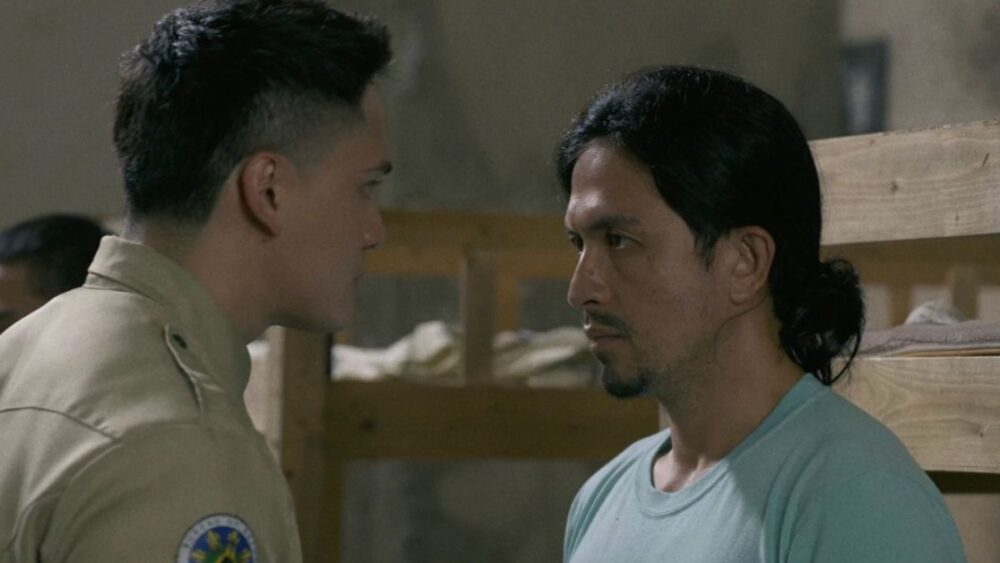MMFF 2024 Movie Reviews: ‘Green Bones’, ‘The Kingdom’

This year’s Metro Manila Film Festival boasts of a lineup of films that—finally—have begun focusing on quality as much as commercial value. While it has received criticisms over the years for fielding in entries that cater to the moviegoing masses, critical acclaim be damned; the past few years have seen the festival slowly regaining its footing.
The films this year range from family dramas and your standard Filipino thrillers, to dramedies and musicals. Below, I write a few thoughts about two of the films, Zig Dulay‘s Green Bones and Michael Tuviera‘s The Kingdom.
‘Green Bones’: A Melodramatic Morality Play that Hits All the Right Emotional Beats
Watching Zig Dulay‘s films is always an interesting experience, as the filmmaker seems to have a pointed fascination with telling stories set in places that transport viewers into fragments of their half-remembered past. With Green Bones, Dulay’s at it once again, using rural aesthetics to blend drama, police procedural, and social commentary. And in typical Dulay fashion, exposition abounds, courtesy of introspective voiceovers and promises made in epistolary form. The results of this alchemy don’t usually land, with plot points that Dulay (from a screenplay by Ricky Lee and Anj Atienza) tackles only on a surface level. As expected, the melodrama is dialed up to eleven here, almost the same frequency as last year’s Firefly.

However, to argue that this is a misstep is to miss the point; much like calling the film a modern Filipino Shawshank Redemption, which would be a great disservice to it. The key to the whole thing is the story, brought to life by its leads. Ruru Madrid shines as a young cop consumed by a rigid sense of self-righteousness, the very same tenet he tries to espouse, which clouds his judgment in the search for justice.
But Dennis Trillo—man. I could go on for hours fawning over his performance here. With his portrayal of a prisoner convicted of a heinous crime he may or may not have committed, Trillo makes the audience question the usual dichotomous judgments we levy upon people. Let’s just say, if Trillo doesn’t win Best Actor at this year’s festival, then we should probably stage a riot.
It seems, to an extent, Dulay wants Green Bones to be a morality play. Whether there’s more to it, however, remains the question; since, as a social commentary indicting the corrupt and broken justice system in the Philippines, it doesn’t entirely succeed. (Think of it as a pale retread of Sandhya Suri‘s Santosh.)
But as a straight drama, there’s nothing more you could ask for. And that, I think, lies in Green Bones‘ magic. As the final frame of the film plays, we find ourselves convinced that, yes, there’s good in the world.
Even in the filthiest, worst places imaginable.
Rating: 4/5
The Kingdom: An Ambitious, Over-Expository Worldbuilding of Alternate Philippine History
Films that tackle worldbuilding usually face the hurdles of pacing, exposition, and runtime. And as has been the case since God-knows-when, those problems are typically justified trade-offs for the ambition inherent in the whole endeavor.
In Michael Tuviera’s The Kingdom, all narrative flaws exist, and the ambition, too, is commendable. But is it enough to offset the film’s shortcomings? I’d say, for the most part, yes. After all, the film presents an alternate Philippine history, one where the country never experienced colonization and has thus retained its original pre-colonial identity. Based on that premise alone, it’s worth anyone’s viewing experience.
Not even midway through the film, however, one can be forgiven for feeling that it drags with its expository elements, which aren’t helped by some clunky execution and cheap-looking visuals. That said, Nestor Abrogena’s production values are top-tier, elevating the movie to the upper echelons of production design in 2024 Philippine cinema. The music by Jessie Lasaten also deserves praise for incorporating tribal chants and indigenous instruments with Western musical composition. Like the film’s contemporary setting, the score represents a progressive country (the Kingdom of Kalayaan) free from colonial influences.
Additionally, the dialogue is rich (especially the confrontation scene between the two leads that reveals both their powerlessness in their situations), although, at times, it tries to shoehorn references to the current political climate in the Philippines. While I don’t mind it, I can understand why some audiences might feel manipulated by such scenes.

Nonetheless, the performances are generally above average. Piolo Pascual, as always, delivers here, and Vic Sotto’s role is sure to give award-giving bodies serious consideration. In particular, there was much fanfare about Sotto’s welcome foray into dramatic territory, considering how long he has spent making cash-grab comedy films. As lovers of film, we’ve long wondered how he would fare under a director like, say, Erik Matti (one that isn’t in the vein of Lastikman). The Kingdom answers that, and more.
But even at his best, Sotto seems to struggle with a variation of Tagalog that younger audiences nowadays may have trouble understanding. And while we’re at it, I found it a little off-putting hearing actors use Spanish-influenced words when Tagalog counterparts are readily available. Perhaps it’s a big deal to me because, for all the prep and hype surrounding the film’s ambition and scope, language plays an integral part in a people’s culture and identity. The lack of attention to this aspect in The Kingdom is a dampener for me.
Rating: 2.5/5


